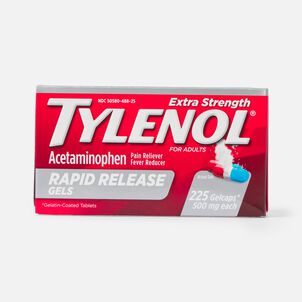Kids are awesome. But that awesomeness can be expensive. According to the U.S. Department of Agriculture, the lifetime cost of raising a child born in 2023 could be estimated at $300,000. Thankfully, you have roughly 18-26 years to balance those payments. But be ready -- some of the biggest expenses come early, starting with childcare.
Since most parents work these days, childcare isn't just a "nice to have" anymore -- it's a necessity. Daycare can run up to $1,000 a month or more, depending on where you live. But we're not here to point out problems, so let's get to a potential solution for offsetting those costs.

Our old friend, the dependent care FSA
Like a traditional FSA, a dependent care FSA is sponsored by your employer who will automatically withhold contributions from your paycheck. But, unlike a traditional FSA or HSA, you typically have to pay for the expenses with your regular checking account or credit card and then apply for reimbursement through the proper procedure. You can only be reimbursed for care that has already been received.
If you choose to go this route, you'll enjoy a $5,000 annual contribution limit for parents/guardians married or filing jointly and $2,500 per person if married and filing separately. But budget smart -- unlike a health care FSA, there are no rollover or extension options and you must use the funds within the plan year and cannot be reimbursed for more than you have already contributed.
For most parents, this is simple because they can easily estimate their childcare costs throughout the year.
But childcare goes beyond daycare. In addition to standard costs, your dependent care FSA can also cover some lesser-known expenses that come with raising children.
After-school care
Work doesn't always end when school does. Meaning parents have to find other ways to care for their kids before punching out for the day. The cost of after-school care is reimbursable. The only "catch" is that the primary purpose has to be for the care of the child and not for education.
In other words, don't try passing off the piano teacher or math tutor as an "after-school caretaker." It's not the same thing.
Babysitting
If there aren't organized after-school care programs available, the cost of a babysitter, in or out of the home, is reimbursable. The cost of the babysitter must be for taking care of a child while you're working, not for personal reasons like a party or a dinner date.
One nice touch is that generally, amounts paid to a relative for qualified child care are reimbursable. Of course, exceptions apply, but as long as your child is being cared for by a qualified adult, money spent for this purpose is generally eligible.
Day camp
The cost of day camp, including specialized day camp (soccer camp, art camp, etc.) is also reimbursable. And, when provided by the caregiver, the cost of transporting the qualifying person to and from the care location is also eligible for reimbursement.
But this is just for day camp -- overnight or sleepaway camps aren't eligible, even if they're serving the same purpose during your workday.
Job hunting
This might be the biggest boost for parents looking to enter (or re-enter) the workforce. If you're going on job interviews, the costs are reimbursable, as long as the following conditions are met:
The person looking for work must have earned SOME income for the year.
If married, the other spouse must be gainfully employed, looking for work, a full-time student or mentally or physically incapable of self-care.
Dependent care FSAs are a big win for people with childcare expenses. Not only do they give parents or guardians a little more freedom to do their jobs without worrying about childcare expenses, but they could potentially save them hundreds (or even thousands) in taxes when used the right way.
Please note, administrators may have specific requirements as to when an expense will be qualified and covered, and in all cases they should speak with their dependent care FSA administrator before electing and/or using their funds.
-
Thank you for visiting the FSA Store Learning Center! Don’t forget to follow us for more helpful tips on Facebook, Instagram, and Twitter!
 |
| 

















